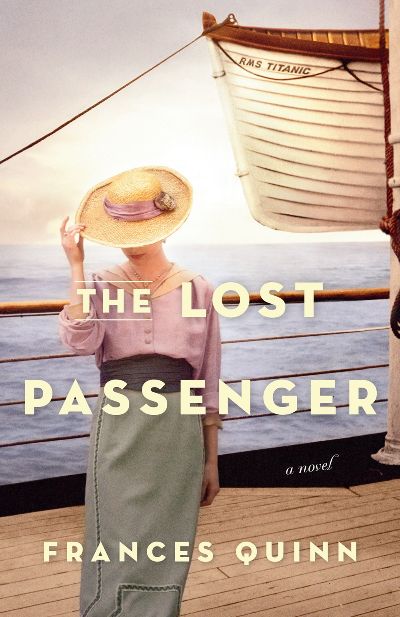Elinor Hayward and her rich, widowed father, a textile millionaire known as the cotton king, are surprised and thrilled to be invited to a high-society ball. Mr. Hayward is a self-made man—the horror!—instead of having been born to wealth like those who usually snub him. At the ball, shy Elinor is rescued by Frederick Coombes, AKA Lord Storton, who seems interested. As is the way in 1910 upper-class London, a formal courtship is soon followed by marriage. Elinor expects a romantic whirlwind like in the Jane Austen novels she adores, but right from the lackluster proposal, things are off, and after they marry, things only get worse. Frederick has no interest in his wife, except as a vessel for the all-important heir. When the couple and Elinor’s father finally board the Titanic along with their baby, it seems like a welcome break from the rules, but we all know what happens. The characterization here is superb. Readers will root for Elinor before she ever arrives on board and will be rapt as she’s thrown into peril while the nightmare unfolds (Quinn offers a wealth of details about the disaster and its aftermath). What follows—Elinor taking the chance to remake herself, always struggling and waiting to be discovered—is also gripping, and this is one of those books that will leave readers bereft once it’s over. A triumph, and surely a movie must be in the works.
Sagas
The walled-off feeling of loneliness in a crowd pervades the pages of Hlad’s piercing historical thriller. Based on a fascinating and little-known true story of World War II, the tale sees librarians from New York Public Library sent throughout Europe to gather materials published by axis powers, photograph it, and send it via microfilm (the thumb drive of its day) back to New York to aid in overthrowing Hitler. Our hero is Maria Alves, a Portuguese American who, due to her parents’ jobs as newspaper photographers, lived all over the world as a child and speaks six languages. Sent to a neutral—but still dangerous—Portugal to scour bookstores for war-relevant information, her cover is that she is working for the Library of Congress to gather materials that are in danger of being destroyed in the conflict. Under no circumstances is she to engage in spying, but that undertaking soon falls by the wayside as the extent of the horror in nearby occupied France becomes apparent. Also affected by the French occupation is Tiago Soares, a Lisbon bookseller whose Grand-père and Grand-mère in Bordeaux run an operation that smuggles Jews to Lisbon, where increasing crowds of penniless, paperless refugees await passage to the United States. Hlad’s immersive portrayal of wartime Lisbon and its inhabitants, of the loneliness caused by the terror that anybody at any time could be an informant, plus his captivating thriller/romance tale make this a must-read, especially for fans of Kate Quinn’s The Rose Code.


